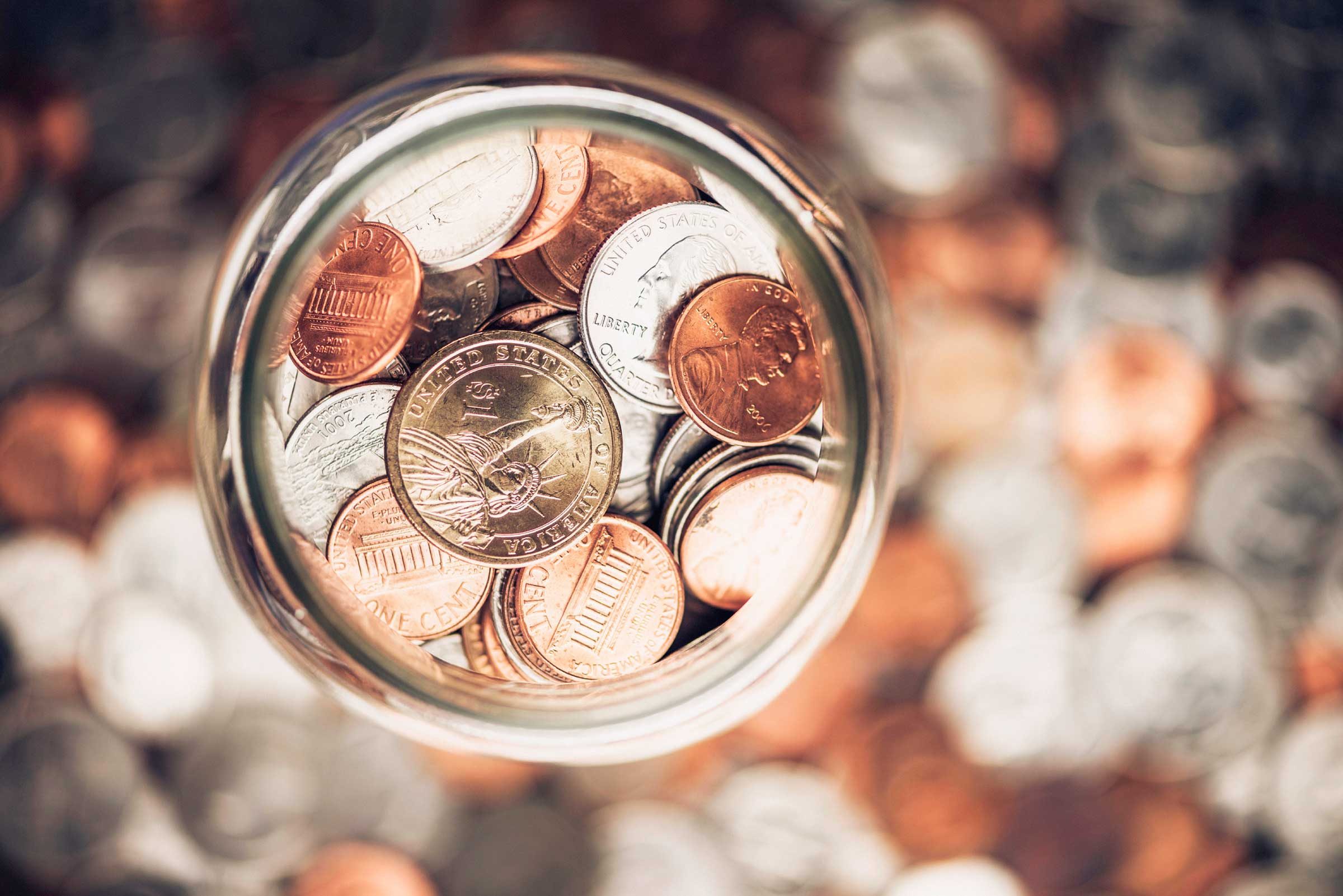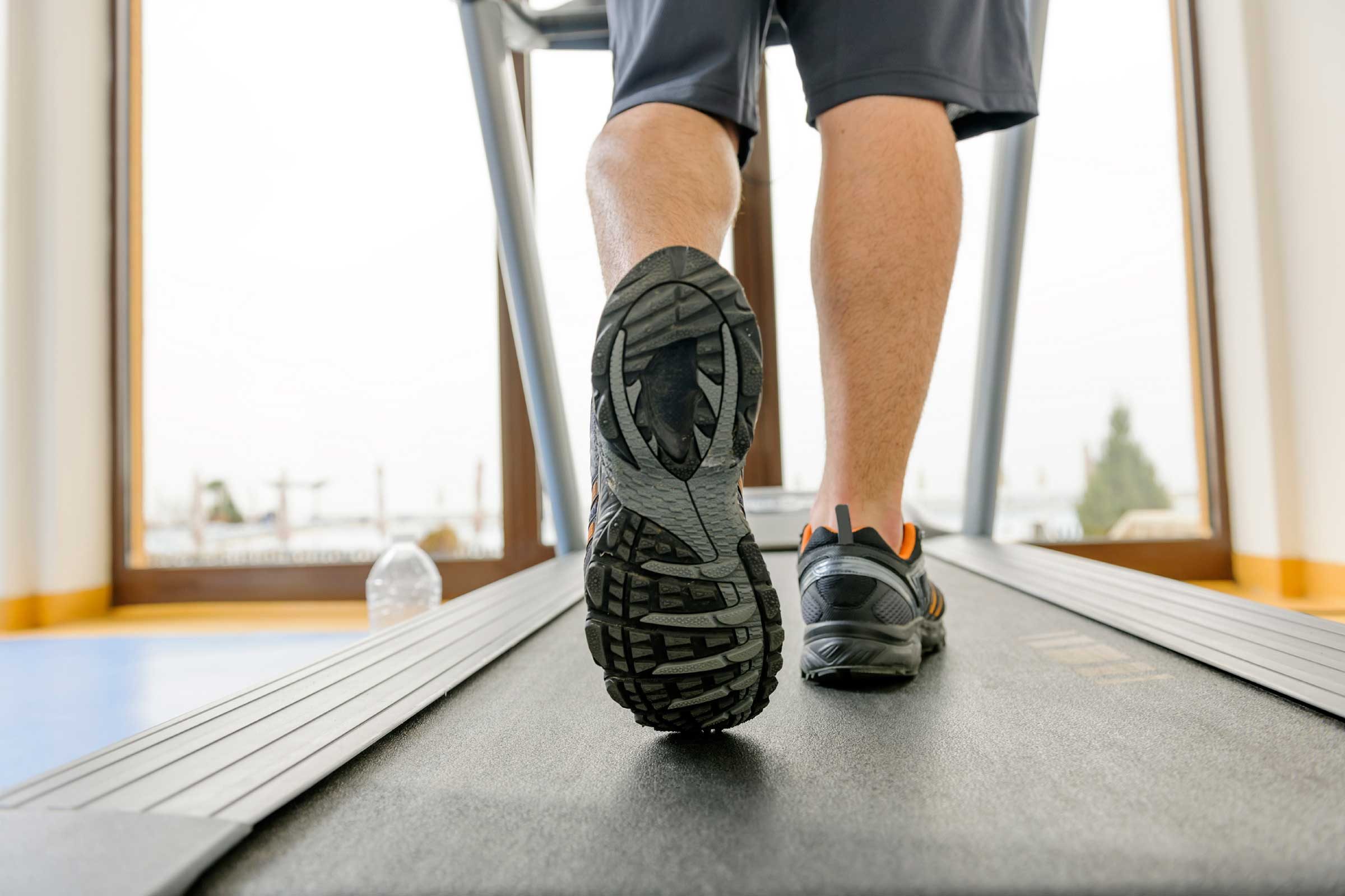
Give money away
According to a 2020 study in the Journal of Positive Psychology, people who donated money they won in a game were happier than participants who kept the money for themselves. Whether it’s spare change or a higher-than-expected tax return, consider giving to a favorite charity to be happier.
Get The Healthy @Reader’s Digest newsletter

Think of buying an “experience”
Earlier studies had found that spending money on experiences, such as buying concert tickets or splurging on a trip, increases happiness more than shelling out for material goods. Some research shows this mood lift can come from simply drafting your list. A Cornell study found that people who merely anticipate making an upcoming experiential purchase, such as ski lessons, report higher levels of happiness than those who plan to buy, say, a new tech gadget.
What Is Happiness? The Science and Benefits of Feeling Happy

Praise someone once a day
Try writing one email, tweet or text of praise; people who began doing this immediately felt happier, Before Happiness author Shawn Achor told Oprah. After 21 days of doing so, they reported feeling deeper levels of social support, a crucial ingredient of longevity. Expressing gratitude is another trick to feel happy and has massive health benefits too.

Sit less
Middle-aged women who sat for more than seven hours a day were 47% more likely to show signs of depression than those who sat for four or fewer, Australian researchers found. Those who engaged in no physical activity were 26% more likely to have symptoms of depression three years later than those who met exercise guidelines. The research can’t prove that sitting makes you sad: It may be that people who are prone to depression are more likely to spend time sitting down. However, people who are more active may also be more likely to engage in social interactions with coworkers or neighbors. Plus, physical activity can release mood-boosting endorphins that keep the blues at bay.

Put a spring in your step
Your gait can impact your mood, new Canadian research shows. Study participants were shown a list with both positive words (“pretty”) and negative (“afraid”), then were asked to walk on a treadmill in either a depressed style—shoulders hunched forward, arms dangling—or a more upbeat way. Hunched panelists remembered far more negative words than those who had a happier pace. Even if you don’t feel like skipping, consider the axiom “fake it ‘till you make it.”

Plan the best for the end
A week in a luxury hotel can feel rather ordinary by day four or five, according to Jaime Kurtz, PhD, an associate professor of psychology at James Madison University on PsychologyToday.com. If you save something special for the end of a trip, it “gives you the benefit of anticipation,” she writes. “Knowing that your final evening of vacation will be spent in a fancy hotel gives you something to look forward to, even as your trip nears its end and your return to everyday life draws depressingly closer.” What’s more, people tend to evaluate experiences like vacations by both their emotional high points as well as their endings. So even if most of the vacation was mediocre, a wonderful wrap-up can help you remember the entire trip in a more positive light.

Take a break from your favorite food
A study in the journal Social, Psychological, and Personality Science found that going a few weeks without a beloved food—whether it’s chocolate ice cream or Brussels sprouts—can help you enjoy it more.

Cherish ordinary moments
Everyday experiences, such as a nice walk home from the office or an unprompted hug from your kid, may bring you more happiness in the future than you might think, according to research in the journal Psychological Science. “People find a lot of joy in rediscovering a music playlist from months ago or an old joke with a neighbor, even though those things did not seem particularly meaningful in the moment,” psychological scientist and lead researcher Ting Zhang of Harvard Business School said in a press release. “The studies highlight the importance of not taking the present for granted and documenting the mundane moments of daily life to give our future selves the joy of rediscovering them.”

Pick up a paintbrush
Tapping into your artistic side may bolster your ability to fend off stress. According to new research reported by Prevention, newly retired adults who would paint or draw once a week for 10 weeks showed more mental resilience (for example: not snapping at your spouse for no reason or getting impatient during traffic). “Creating visual art improves the connections between brain regions associated with resilience, likely because it’s an activity that calls for integrating cognitive, motor, and creative skills,” the magazine reported. To start, consider buying a guided art therapy book or one of these other simple products to make you feel happier.

Cue up the bass
Music with a strong bass can make you feel more powerful and motivated, according to recent Northwestern University research. People who tuned into bass-heavy songs, for example, were twice as likely to go first in a debate as those who didn’t, Good Housekeeping reported. For high-power beats, think Queen’s upbeat anthem “We Will Rock You” or 2 Unlimited’s “Get Ready for This.”
For more wellness updates, follow The Healthy on Facebook, Instagram, and Twitter. Keep reading:
- Here’s What Neil Patrick Harris Ordered on His First Date with David Burtka
- Here’s How Much Exercise You Need to Keep Your Brain Sharp, a Recent Study Says
- Are You Being ‘Micromanipulated’? Therapists on How to Spot This in Your Relationship
- You’ll Age Better If You Have This One Simple Thing, According to Science
